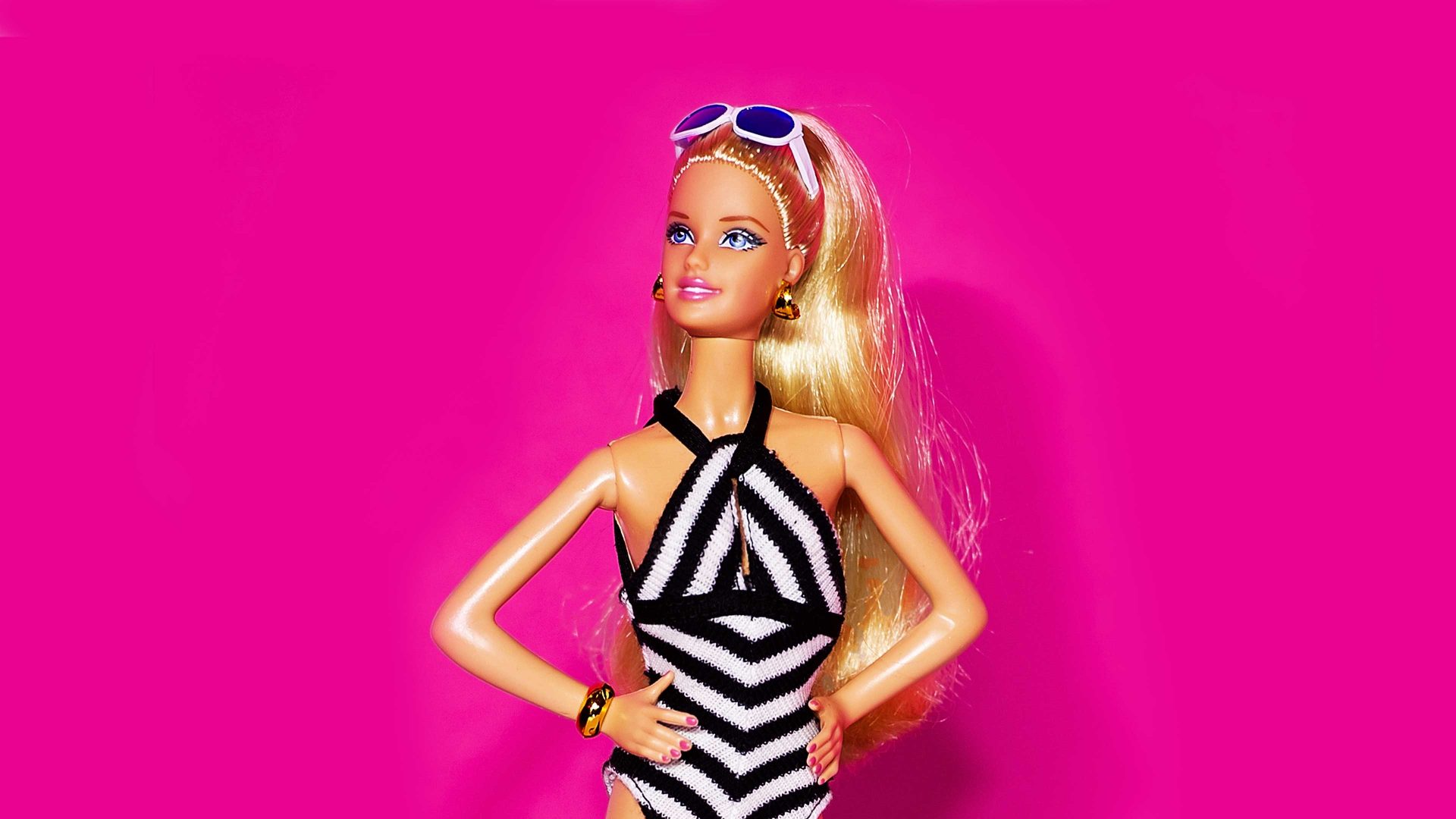I’m a Barbie girl in the Barbie world. A bald statement – and a factually incorrect one: I’m a 61-year-old man in a world that – whatever the claims of philosophical idealists – seems perfectly real to me, unlike the one lived in by the eponymous dolly. Nor can I concur with the assertion that life is plastic, or the assessment that this is “fantastic” – what’s truly amazing is quite how fleshy life seems, at least to me.
One thing I do know with certainty, and that is there’s absolutely no need for a film based on a revisionist view of the notoriously bimboish Barbie, since the Scandi-poppers Aqua recorded their single, Barbie Girl, 25 years ago; an insanely annoying piece of bubble-gum flim-flam that nonetheless skewers the entire phenomenon to satiric perfection.
“You can brush my hair/Undress me everywhere,” warbled Lene Nystrøm, Aqua’s lead vocalist, her voice alone an exact expression of empty-headed teenage commodification: the young woman simultaneously figured as consumer and product – the internalised prostitution that’s the essence of alienation under late capitalism. You don’t have to subscribe to the Marxist theory of commodity fetishism in order to appreciate the genius of a pop song that asserts the fundamentally anthropic character of post-industrial society – but it does explain why “Life is your creation” is such a brilliant observation.
Barbie Girl was one of the highest-selling pop singles ever – and quite possibly the members of Aqua are still lying beside their Barbie-shaped swimming pool in the Hollywood Hills (or its equivalent in the rather flatter terrain of Jutland), thanks to its proceeds. And I don’t begrudge them this; they fought their battle with Mattel, the doll’s manufacturer, in order to release the song, and made their money from criticality rather than crass conformity. Until the opening box office figures for the new film come in, if we are living in a Barbie world at all, it’s Aqua’s.
The official video accompanying the song has had no less than 1.2 billion views on YouTube; which, evenly distributed, would imply that one in seven of the world’s human population had seen it. Of course, at least some of these will be multiple views, engaged in by those obsessed by the perversities of its puppetry: real-life humans playing the part of plastic dolls. Freud remarks, in his famous essay on the uncanny, that “in their early games children do not distinguish at all sharply between living and lifeless objects, and that they are especially fond of treating their dolls like live people.”
It’s only in adulthood that we find dolls-pretending-to-be-human and humans-pretending-to-be-dolls unsettling; this disjunction, Freud tells us, is between the acceptance and the repression of an infantile belief rather than an infantile fear. For the child, to live in a Barbie world is to experience a kind of immortality: the doll is the necessarily unchanging counterpart to the child’s sense of omnipotent narcissism. For the Viennese sage, there’s an analogic relationship between cultural and individual development – so, he views the Ra dollies and the Krishna dollies, and the Jesus ones, too, as evidence of the primitive character of religion.
Of course, the first thing any child, of any sex, does to a clothed dolly (again, of any sex), is to undress it, and examine closely the juncture of its plastic thighs. Indeed, this is as universal experience as there is nowadays: not the comparison of real-life penises and vulvas, with all their troubling smells and feels, but the apprehension of reassuringly fake and denatured ones. Is it any wonder that under such circumstances the sexual ideal for everyone becomes not merely neotenous – shaved pubic hair, unisex figures – but artificial. In Barbie world, people fantasise about dolls while having sex with… humans.
All of which makes Barbie, the movie, a surefire success. Religion cannot be extirpated – whatever Freud’s fantasy – and instead of infantile narcissism being expunged by the talking cure, it’s been universalised, commoditised… and ultimately, weaponised by the all-singing, all-dancing blockbuster. It may not be much of a reach for Ryan Gosling in particular to play plastic – he’s already done it fantastically in such disparate vehicles as Blade Runner 2049 and La La Land. But while its director, Greta Gerwig, and the rest of the cast and crew of the film may imagine they’re empowering flesh-and-blood girls to confront their own objectification, as the merchandising and the multi-generational audience confirm: infantility + objectification + commoditisation is the order of the day. Aqua were right – and I’m emphatically wrong: We’re all Barbie girls (or at least “only Kens”), and we’re all living in a Barbie world.



